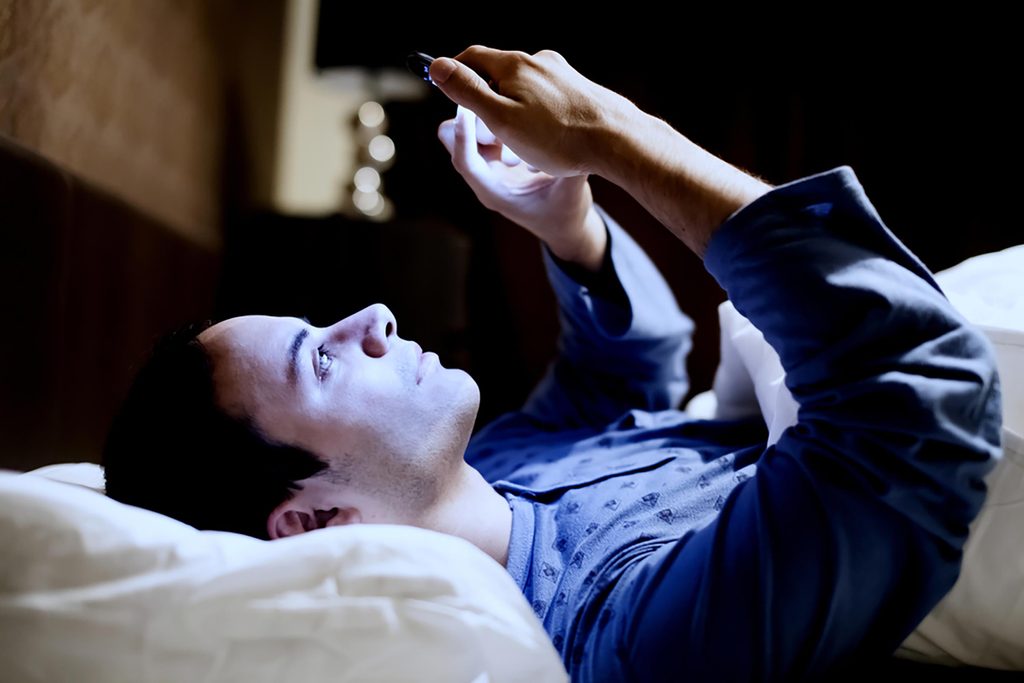Here’s Why You Should Stop Using Your Smartphone in Bed—Seriously
Updated: Aug. 01, 2017
If you think that one last game of Candy Crush is harmless, you might want to think again.
 We’ve said it before, and we’ll say it again: Your LED screens are taking a serious toll on your sleep cycle. Scrolling through Facebook or playing that last game of Candy Crush before you hit the hay are just a few of the many surprising habits that are keeping you up. (It’s also why you can’t fall asleep on Sunday nights.)
We’ve said it before, and we’ll say it again: Your LED screens are taking a serious toll on your sleep cycle. Scrolling through Facebook or playing that last game of Candy Crush before you hit the hay are just a few of the many surprising habits that are keeping you up. (It’s also why you can’t fall asleep on Sunday nights.)
Now, you have one more reason to ban the blue light in the evenings. A study published in the medical journal BMJ Open, which surveyed almost 10,000 Norwegian teenagers aged 16 to 19 in Norway, just confirmed it! According to them, the higher your device dosage before bed, the higher your risk of sleeplessness—also called a “dose-response relationship.”
“Almost all adolescents reported using one or more electronic devices during the last hour before bedtime,” the Norwegian scientists wrote. “Extensive use of these devices was significantly and positively associated with SOL [sleep onset latency, or the amount of time it takes to nod off] and sleep deficiency, with an inverse dose–response relationship between sleep duration and media use.”
Previous research has shown that blue light stimulates our brains, causing us to toss and turn in bed. But this study suggests that electromagnetic radiation and our hunched-over posture, which can cause headaches and muscular pain, could also be the culprits that keep us awake. (Plus, wakefulness could mean you have any one of these medical conditions.)
“There are probably multiple pathways explaining the associations between sleep and electronic devices,” the study’s researchers said. “Media use may directly affect sleep by replacing it due to its time-consuming nature, or may interfere with sleep through increased psychophysiological arousal.”
To start snoozing the minute your head hits the pillow, try reading a book, writing in a journal, or drinking some tea at least an hour before your bedtime. Doing so will slow down your brain activity and prep it for a good night’s sleep.
Still counting sheep into the wee hours of the morning? Don’t miss even more changes you can make for a better night’s sleep.